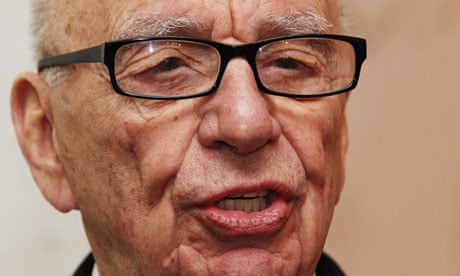Directors within Rupert Murdoch's News Corporation could face corporate charges and prosecution for neglect of their duties, in plans that are being examined by the Crown Prosecution Service.
Company lawyers, fearing a dramatic escalation of the hacking scandal by criminalising the boards on which Murdoch family members sit, are understood to have protested to the authorities.
A criminal prosecution could have a strong adverse impact on the deliberations by Ofcom as to whether News Corp representatives are "fit and proper" to hold UK broadcasting licences.
Asked about representations that have been made to the police or the CPS about the unfairness of possible corporate charges, a News International spokesman said yesterday that Deputy Assistant Commissioner Sue Akers, who is leading the police inquiries into phone hacking, conceded the company culture had now changed: "She agreed that the current senior management and corporate approach at News International has been to assist and come clean."
The company's protestations that it had turned over a new leaf appeared to receive some support from Lord Justice Leveson at his inquiry last week, when he brought up its past alleged obstruction of the police. Leveson said at the inquiry: "I received evidence of the response which the police received when they visited News International in 2006.
"Would it be right for me to conclude at this stage that whatever might have happened in the past at News International titles, the senior management and corporate approach now has been to assist and come clean, from which I might be able to draw the inference that there is a change in culture, practice and approach?" Akers responded: "Yes, sir. I don't disagree with any of that."
One problem for News International, however, is the wording of section 79 of the Regulation of Investigatory Powers Act, the hacking legislation under which eight senior News of the World journalists and executives have already been charged. It provides for the corporate prosecution of a company which commits such an offence, and also of any director whose neglect or connivance led to the crime.
The most senior executive so far charged with offences, and the only News International board member, is Rebekah Brooks, the former chief executive, who denies separate allegations of an attempted cover-up of the hacking scandal, as well as denying the charges of involvement in hacking. She only joined the board in 2009 and resigned last year.
Rupert Murdoch's son James joined the News International board in April 2008, and resigned last year. His father also recently resigned all his UK newspaper board positions. The only other senior Murdoch executive on the NI board throughout the period of the original hacking scandal was its previous chief executive, Les Hinton, who left the UK boards in 2007. He said later: "I was ignorant of what apparently happened."
Hinton rejected heavy criticisms of him by a Commons committee investigating the phone hacking, which accused him of "selective amnesia" in his dealings with them. The report, published earlier this year, claimed he misled parliament and was "complicit" in a cover-up of the true extent of the hacking.
The culture, media and sport committee also accused James Murdoch of willful blindness in failing to investigate the extent of phone hacking. Opposition MPs on the committee branded Rupert Murdoch as unfit to be in charge of a large media firm, although Tory members refused to support this.
The CPS is not making any public statements. But the disclosure that it was advising the police on possible corporate criminal charges was made by Akers during her Leveson testimony, when she said that advice was being obtained "in respect of both individual and corporate offences". Despite subsequent speculation that this was a reference to possible action against the company by the US justice department, it is understood that the CPS is only looking at potential UK offences. News International said: "We are aware of the reference made by DAC Sue Akers in her evidence to the Leveson inquiry."
